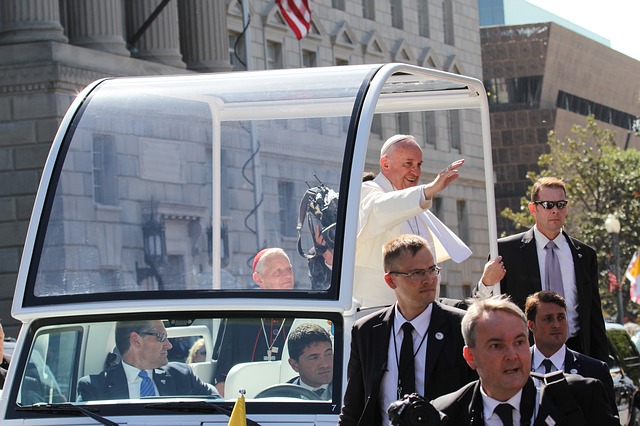Pope Francis has spoken regarding his stance on the death penalty on October 11, citing that the death penalty is "contrary to the Gospel" and adds that "however grave the crime that may be committed, the death penalty is inadmissible because it attacks the inviolability and the dignity of the person."
In his speech before cardinals, bishops, priests, nuns, catechists and ambassadors for the 25th anniversary of the promulgation of the catechism, he affirs that there has been a development regarding the church's doctrine and the changes in the consciousness of Christians on the issue of death penalty. His comments and the timing of his speech suggests that it is time to revise the 'Catechism of the Catholic Church' to match this new understanding of the issue.
In his speech, the Pope said "one has to strongly affirm that condemnation to the death penalty is an inhuman measure that humiliates personal dignity, in whatever form it is carried out. And [it] is, of itself, contrary to the Gospel, because it is freely decided to suppress a human life that is always sacred in the eyes of the Creator, and of which, in the final analysis, God alone is the true judge and guarantor."
Pope Francis also looks back in his letter to the president of the International Commission against the Death Penalty in March 2015 in his speech where he wrote, "No man ever, not even the murderer, loses his personal dignity, because God is a Father who always awaits the return of the son who, knowing that he has done wrong, asks pardon and begins a new life." With this reason, he adds "life cannot be taken away from anyone" and there should always be "the possibility of a moral and existential redemption that will be to the favor of the community."
Several popes have tried to appeal to governments worldwide to stop the practice of the death penalty and appealed for clemency for those in the death row. Some had also tried to revise the Church's teachings regarding the issue. The 'Catechism of the Catholic Church', which was published in 1992 under St. John Paul II's tenure, was met in criticism due to its admission to use the death penalty, prompting the pontiff to revise it in 1997. The revised text; however, still did not exclude the death penalty on moral grounds which Pope Francis cites today.
Pope Francis has been active in campaigning for the abolition of the death penalty since he became pope, including the issue in his speech before the US Congress and the United Nations in September 2015. However, his speech on Wednesday is a step-up to what his predecessors done in the issue by citing the importance of revising the 'Catechism of the Catholic Church' and address the question completely to make it easier for the changing mindset of the Christian people to understand and support.
The Pope has cited several examples in the past which supports his stance on the topic, citing that the teaching of the church regarding the death penalty must be revised and discussed thoroughly to explain to the Christian people the importance of rejecting the punishment that 'heavily harms human dignity' because remaining neutral on the topic would only render people 'guiltier' of violating the human dignity of others.
He also explained that "Here we are not in the presence of any contradiction with past teaching, because the dignity of human life from the first instant of conception to natural death has always found in the church it coherent and authoritative voice. The harmonious development of doctrine requires putting aside positions in defense of arguments that already appear decidedly against the new understanding of Christian truth."
With this fact, he stressed that "It is necessary therefore to restate that, however grave the crime that may be committed, the death penalty is inadmissible because it attacks the inviolability and the dignity of the person."
Pope Francis ends his speech by saying that "tradition is a living reality and only a partial vision can think of 'the deposit of faith' as something static. The Word of God cannot be conserved in mothballs as if it were an old blanket to be preserved from parasites. No. The Word of God is a dynamic reality, always alive, that progresses and grows because it tends towards a fulfillment that men cannot stop."
This "law of progress," he said, "appertains to the peculiar condition of the truth revealed in its being transmitted by the church, and does not at all signify a change of doctrine. One cannot conserve the doctrine without making it progress, nor can one bind it to a rigid and immutable reading without humiliating the Holy Spirit."








